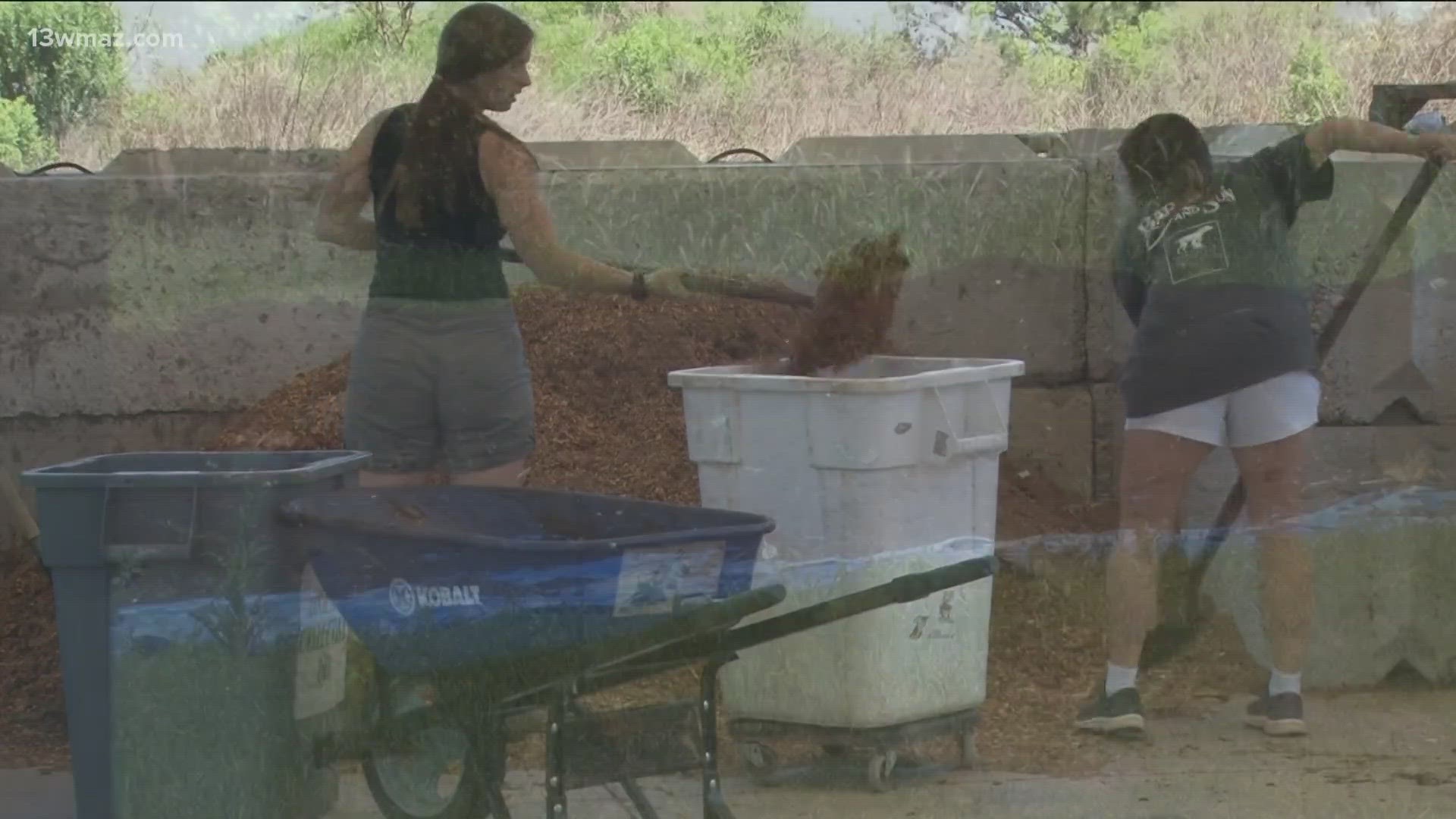MILLEDGEVILLE, Ga. — One man's trash is another man's treasure.
That's the motto of Georgia College's all-female compost team.
They're taking their school's food waste and turning it into compost to better the Earth, and for a profit.
13WMAZ’s Jessica Cha got down in the dirt to see why this is important.
"The Dining Hall at Georgia College serves about 20,000 meals a month and about 20% of that food goes to waste. However, an all-women's group of student is helping turn that trash into gold.
Anna Lippy is an environmental science major.
"Learning about sustainable solutions gives me hope that we can make our planet last as much as we can,” she says.
She’s passionate about preserving the Earth.
"I can just see a real need for needing to conserve our resources, and make sure that our future generations have enough of what they need to survive,” Lippy explains.
Looking for a way to do her part, her professor recommended the composting team, and she joined last August.
Their process all starts in the dining hall.
"Monday through Friday, we'll go to the cafeteria and pick up some bins. They're about 46 gallons.”
They pick up 1,000 pounds of student leftovers a week. Students drop off their food on the dining hall’s conveyor belt, it goes into the kitchen, and leftovers are sorted and scraped into the bins.
"We put them on a truck, and then we drive out to our beautiful compost site and we load them into a mixer.
The leftovers are combined with a one-to-one ratio of sawdust to balance the food's chemicals. Then it's sent to the drum of a large machine.
"It'll sit in this drum for a couple of weeks and get to really high temperatures. Like 130, 140 degrees Fahrenheit,” Lippy explains.
The team takes out the compost so it can finish breaking down.
“We’ll put it into this new system called ‘aerated static piles.’ All of the microorganisms can eat up all of the nutrients to give us a really rich fertilizer,” she says.
The composting program started in 2017 and since then, 70,000 pounds of compost have been made.
"We've already taken out 16,000 pounds, and the semester's not even over yet,” Lippy says. “Our landfills are filling up, and anything we can do to send less to them is awesome."
According to the U.S. Environment Protection Agency, food that goes to landfills creates methane; a greenhouse gas. They trap heat in the atmosphere causing climate change.
Molly Robbins, another environmental science student, says compost reduces that effect significantly.
“We often don’t think about why soil is important for climate change, but in reality it is pivotal,” Robbins explains. “Compost actually allows us to store carbon – the same emissions that we’re so worried about – we can actually store right into our soil using compost. Compost allows us to lock in that carbon for years and years without bothering us by going into the atmosphere.”
The students typically use the compost for their gardens, but usually have a lot of leftovers.
Lippy says her senior project is to sell it.
“We’ll sell our products to faculty and local community partners. It should be up and running by next fall,” she says.
Lippy says that not only will it make the soil in Baldwin County better, but it’s also to improve the equipment to make the workload of making compost easier!
“Up until now, we’ve been doing back-breaking work. Before Molly created her capstone, we just had the pulled compost from the drum in long rows, and once a week we’d have to turn them with shovels. That gets really hard when it’s hot,” she explains. “Making a program sustainable is not only good for the environment, making more efficient systems is really important.”
She says it’s also better than what's sold in stores.
"Most of what they're using is green waste. Green waste compost typically lacks nitrogen, so we can provide that, and the plants really love nitrogen. It's really inspiring and motivating to keep making a change,” Lippy says.
They say they’ll sell the compost in five-gallon buckets. The prices will range– depending on sifted or unsifted compost– $10-15 per bucket.

